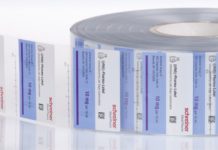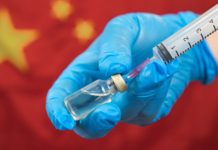Shire plc announces the launch of CUVITRU , 20% Solution], the first and only Subcutaneous 20% treatment option without proline available in the U.S. to treat adult and pediatric patients (two years of age and older) with primary immunodeficiency (PI).
The U.S. FDA approved CUVITRU in September 2016 as a subcutaneous immune globulin (IG) replacement therapy for PI, a group of more than 300 genetic disorders in which part of the body’s immune system is missing or functions improperly, in some cases making it more difficult to fight off infections.1,3 PI affects up to six million people worldwide.1,2
People living with PI often face significant challenges relating to their disease and treatment. CUVITRU offers patients flexibility and control to manage their treatment in a way that best fits their needs and condition. In clinical trials, CUVITRU was infused weekly in under an hour in one to two sites for most patients. However, CUVITRU can be administered daily to biweekly and in up to four infusion sites, based on a patient’s individual needs. CUVITRU is also the only 20% subcutaneous IG treatment option with the ability to infuse up to 60 mL (12 grams) per site and up to 60 mL per hour per site, as tolerated, allowing for fewer infusion sites and shorter infusion durations compared to other conventional subcutaneous IG treatments.
“We welcome CUVITRU as a new treatment option that will help patients and families manage their PI and adapt their treatment regimen to meet their personal needs,” said Fred Modell, cofounder of the Jeffrey Modell Foundation, an organization devoted to early and precise diagnosis and care of PI patients. “We commend Shire’s commitment to providing a range of treatment options that aim to improve the lives of PI patients.”Perry Sternberg, Head of U.S. Commercial, Shire, said: “CUVITRU offers an important new option for patients living with PI, providing the opportunity for fewer infusion sites and shorter infusion durations. Shire has focused on making CUVITRU available quickly following FDA approval. We recognize the importance of ensuring patients have access to a broad portfolio of IG treatment options so they can choose a therapy that best fits their needs.”
The FDA approval was based on positive results from two prospective open-label, non-controlled, multi-center Phase II/III studies assessing the efficacy, tolerability and pharmacokinetics of CUVITRU in patients two years and older with PI. In the North American Clinical Study nearly all infusions (99.8%) were completed without a reduction, interruption, or discontinuation for tolerability reasons and 84.9% of infusions were administered using ≤ 2 infusion sites.
Regardless of infusion rate or volume per site, CUVITRU was generally associated with a low incidence of local adverse and systemic reactions (0.022/infusion and 0.042/infusion, respectively).With the availability of CUVITRU, Shire expands its industry-leading portfolio of intravenous and subcutaneous IG products available for PI patients. In June 2016, Shire announced the successful completion of a decentralized procedure to support approval by 17 authorities in Europe for CUVITRU. The company expects to initiate additional global regulatory submissions for CUVITRU in late 2016 and 2017.For more information on CUVITRU, please visit www.cuvitru.com
About Primary Immunodeficiency
Primary immunodeficiencies (PI) are a group of more than 300 disorders in which part of the body’s immune system is missing or does not function properly.2 Normally, the immune system protects the body from pathogenic microorganisms like bacteria, viruses, and fungi, which can cause infectious diseases. When any part of a person’s immune system is absent or dysfunctional, the individuals are susceptible to infections, and it may take longer to recover from infections. When a defect in the immune system is inherited and genetically determined, it is called primary immune deficiency.3 It is estimated that as many as six million children and adults may be affected by PI worldwide.1
References
1 Bousfiha AA et al. Primary immunodeficiency diseases worldwide: more common than generally thought. J Clin Immunol. 2013 Jan;33(1):1-7.
2 Picard C, Al-Herz W, et al. Primary Immunodeficiency Diseases: an Update on the Classification from the International Union of Immunological Societies Expert Committee for Primary Immunodeficiency. J Clin Immunol. 2015 Nov;35(8):696-726.
Investor Relations
Sarah Elton-Farr
seltonfarr@shire.com
+44 1256 894157
Robert Coates
rcoates@shire.com
+44 1256 894874
Ian Karp
ikarp@shire.com
+1 781 482 9018
Media
Molly Poarch
molly.poarch@shire.com
+1 312-965-3413
Debbi Ford
Email- debbi.ford@shire.com
Phone :-+1 617 949 9083


























